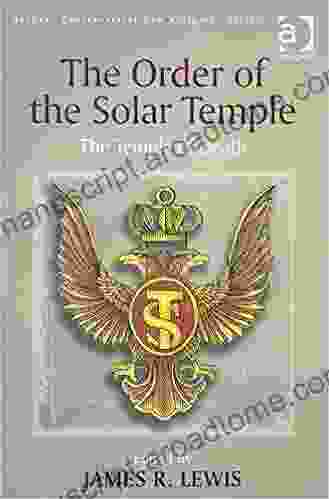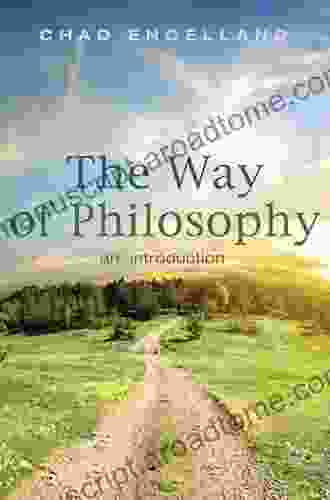The Way of Philosophy: An Introduction to the World's Greatest Intellectual Adventure

Philosophy is the study of the fundamental nature of reality, existence, knowledge, values, reason, mind, and language. It is a vast and diverse field of inquiry, with a rich history and a wide range of perspectives. In this book, esteemed philosopher and author Anthony Gottlieb provides a comprehensive to the way of philosophy, exploring its central questions, methods, and thinkers.
4.7 out of 5
| Language | : | English |
| File size | : | 1074 KB |
| Text-to-Speech | : | Enabled |
| Screen Reader | : | Supported |
| Enhanced typesetting | : | Enabled |
| Word Wise | : | Enabled |
| Print length | : | 93 pages |
| Lending | : | Enabled |
What is Philosophy?
Philosophy is often defined as the love of wisdom. It is a pursuit of knowledge and understanding that is not limited to any particular subject matter. Philosophers have sought to answer questions about the nature of the universe, the meaning of life, and the best way to live. They have also explored the nature of knowledge, the mind, and language.
The History of Philosophy
The history of philosophy can be traced back to the ancient Greeks, who first began to ask philosophical questions in a systematic way. Some of the most famous Greek philosophers include Socrates, Plato, and Aristotle. The Greek philosophers laid the foundation for much of Western thought, and their ideas continue to be studied and debated today.
The Branches of Philosophy
Philosophy is divided into several different branches, each of which focuses on a different set of questions. Some of the main branches of philosophy include:
- Metaphysics: Metaphysics is the study of the fundamental nature of reality. It explores questions such as: What is the nature of the universe? What is the relationship between mind and body? What is the nature of time and space?
- Epistemology: Epistemology is the study of knowledge. It explores questions such as: What is knowledge? How do we know things? What is the relationship between belief and knowledge?
- Ethics: Ethics is the study of morality. It explores questions such as: What is the good life? What is the right thing to do? What is the nature of virtue?
- Political philosophy: Political philosophy is the study of the nature of government and society. It explores questions such as: What is the best form of government? What are the rights and responsibilities of citizens? What is the nature of justice?
The Methods of Philosophy
Philosophers use a variety of methods to explore their questions. Some of the most common methods include:
- Reason: Philosophers often use reason to argue for their positions. They will use logic and evidence to support their claims and to refute the claims of others.
- Intuition: Philosophers also sometimes use intuition to support their positions. Intuition is a kind of immediate knowledge or insight that does not rely on reason or evidence.
- Experience: Philosophers may also use experience to support their positions. They may draw on their own experiences or the experiences of others to make their case.
The Thinkers of Philosophy
There have been many great philosophers throughout history. Some of the most famous philosophers include:
- Socrates: Socrates was a Greek philosopher who lived in the 5th century BC. He is known for his method of questioning, which he used to expose the contradictions in people's beliefs.
- Plato: Plato was a Greek philosopher who lived in the 4th century BC. He is known for his theory of Forms, which posits that there is a realm of perfect Forms that exist beyond the physical world.
- Aristotle: Aristotle was a Greek philosopher who lived in the 4th century BC. He is known for his work in logic, metaphysics, and ethics.
- René Descartes: René Descartes was a French philosopher who lived in the 17th century. He is known for his famous statement, "I think, therefore I am."
- Immanuel Kant: Immanuel Kant was a German philosopher who lived in the 18th century. He is known for his work in epistemology and metaphysics.
The Importance of Philosophy
Philosophy is an important subject because it helps us to understand the world around us. It can help us to answer questions about the nature of reality, the meaning of life, and the best way to live. Philosophy can also help us to develop our critical thinking skills and to become more open-minded and tolerant.
4.7 out of 5
| Language | : | English |
| File size | : | 1074 KB |
| Text-to-Speech | : | Enabled |
| Screen Reader | : | Supported |
| Enhanced typesetting | : | Enabled |
| Word Wise | : | Enabled |
| Print length | : | 93 pages |
| Lending | : | Enabled |
Do you want to contribute by writing guest posts on this blog?
Please contact us and send us a resume of previous articles that you have written.
 Book
Book Novel
Novel Page
Page Chapter
Chapter Text
Text Story
Story Genre
Genre Reader
Reader Library
Library Paperback
Paperback E-book
E-book Magazine
Magazine Newspaper
Newspaper Paragraph
Paragraph Sentence
Sentence Bookmark
Bookmark Shelf
Shelf Glossary
Glossary Bibliography
Bibliography Foreword
Foreword Preface
Preface Synopsis
Synopsis Annotation
Annotation Footnote
Footnote Manuscript
Manuscript Scroll
Scroll Codex
Codex Tome
Tome Bestseller
Bestseller Classics
Classics Library card
Library card Narrative
Narrative Biography
Biography Autobiography
Autobiography Memoir
Memoir Reference
Reference Encyclopedia
Encyclopedia Elizabeth Stone
Elizabeth Stone Lara Carter
Lara Carter Stuart Robson
Stuart Robson Cherie Burns
Cherie Burns Nathan Jurgenson
Nathan Jurgenson Chongbin Zhao
Chongbin Zhao Charley Rosen
Charley Rosen Cendrine Marrouat
Cendrine Marrouat Charles Babbage
Charles Babbage Maurizio Rossi
Maurizio Rossi Christina Van Starkenburg
Christina Van Starkenburg Reese Ling
Reese Ling Cesar Marolla
Cesar Marolla Chris Holcomb
Chris Holcomb Chang Hwei Chen
Chang Hwei Chen Scott Mcelhaney
Scott Mcelhaney Ramesh Sunam
Ramesh Sunam Charles E Neu
Charles E Neu Matthew Ralph
Matthew Ralph Cheri L Dotterer
Cheri L Dotterer
Light bulbAdvertise smarter! Our strategic ad space ensures maximum exposure. Reserve your spot today!

 Jaylen MitchellCase Study of Semi-Arid Region in Maharashtra State of India: A Comprehensive...
Jaylen MitchellCase Study of Semi-Arid Region in Maharashtra State of India: A Comprehensive...
 Connor MitchellUnlocking Innovation: Business Models and ICT Technologies for the Fashion...
Connor MitchellUnlocking Innovation: Business Models and ICT Technologies for the Fashion... Allen ParkerFollow ·6.2k
Allen ParkerFollow ·6.2k Alec HayesFollow ·2.9k
Alec HayesFollow ·2.9k Simon MitchellFollow ·11.1k
Simon MitchellFollow ·11.1k Brady MitchellFollow ·2.4k
Brady MitchellFollow ·2.4k Seth HayesFollow ·14.9k
Seth HayesFollow ·14.9k Aldous HuxleyFollow ·15.1k
Aldous HuxleyFollow ·15.1k Frank MitchellFollow ·9.3k
Frank MitchellFollow ·9.3k Glenn HayesFollow ·16.6k
Glenn HayesFollow ·16.6k

 Esteban Cox
Esteban CoxYour Yearly Monthly Weekly Daily Guide To The Year Cycle:...
As we navigate the ever-changing currents...

 George Orwell
George OrwellIdentifying and Understanding Astronomical and...
Prepare to embark on an extraordinary...

 Arthur Conan Doyle
Arthur Conan DoyleYour Yearly Monthly Weekly Daily Guide to the Year Cycle:...
Welcome to "Your Yearly Monthly Weekly Daily...

 Steve Carter
Steve CarterUrban Informatics: Unlocking the Secrets of Smart Cities...
An In-Depth Exploration of Urban...

 Henry Hayes
Henry HayesUnveil the Secrets of the Order of the Solar Temple: A...
In the realm of secret...
4.7 out of 5
| Language | : | English |
| File size | : | 1074 KB |
| Text-to-Speech | : | Enabled |
| Screen Reader | : | Supported |
| Enhanced typesetting | : | Enabled |
| Word Wise | : | Enabled |
| Print length | : | 93 pages |
| Lending | : | Enabled |










